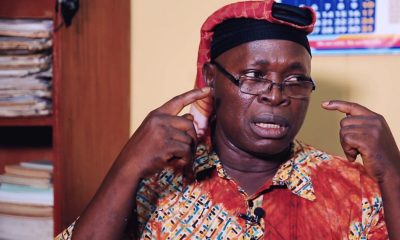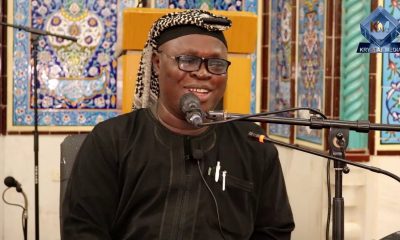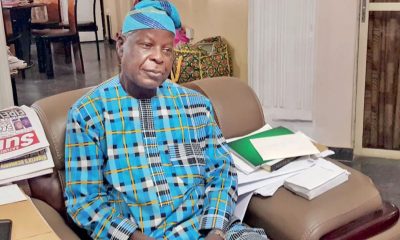metro
Lagos 2023: MURIC faults Sanwo-Olu’s endorsement for second term
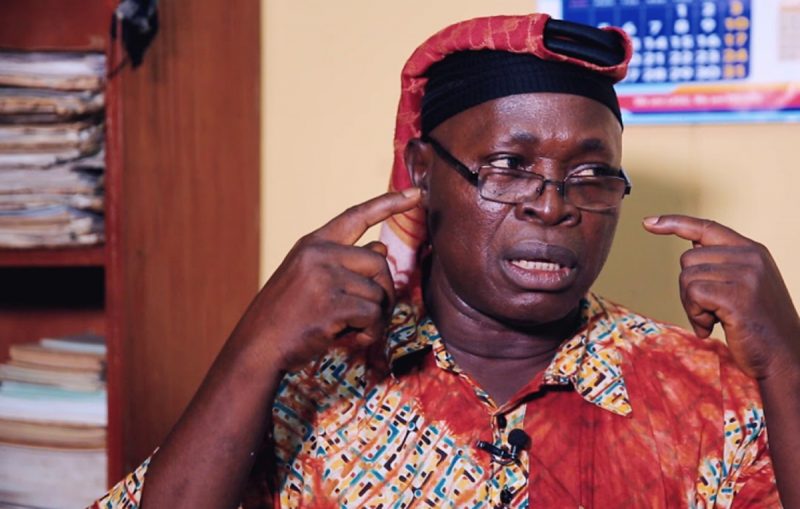
A Muslim rights advocacy group, the Muslim Rights Concern (MURIC), has opposed the endorsement of Governor Babajide Sanwo-Olu for a second term. The group hinged its objection on the fact that Christians have had their two terms and it is the turn of Muslims to produce a governor by 2023.
MURIC’s position was enunciated in a statement circulated among the media on Monday, 25th April, 2022. The statement was signed by the director of the organization, Professor Ishaq Akintola.
The statement reads:
“Leaders of the ruling party in Lagos, the All Progressives Congress, last week endorsed the incumbent governor of the state, Babajide Sanwo-Olu, for a second term in office for the 2023 gubernatorial election. Unfortunately this endorsement violated a long standing albeit unwritten rule on rotational governance between Christians and Muslims in Lagos State.
“It is on record that ex-Governor Akinwunmi Ambode, a Christian, spent four years in office and another Christian, Babajide Sanwo-Olu, was brought in ostensibly to complete the Christians’ two terms which expires by May 2023 when a Muslim, ceteris paribus, is expected to take over the reins of office.
“That is why Muslims in Lagos State regard the recent endorsement given to Governor Babajide Sanwo-Olu to run for the Christians’ third term as unfair, unjust and provocative. It may not be known in official circles but Lagos Muslims are grumbling and we have been under pressure for some time now to speak up. It is a dangerous dimension capable of eliciting protest bulk vote against the ruling party unless the issue is ironed out at a roundtable between leaders of the party, the Lagos State Government (LASG) and Lagos Muslims.
READ ALSO:
- Timothy Adegoke: Judge stands down case as second defendant slumps in court
- Constituency Projects: How Lawmakers Are Diverting Public Funds — ICPC
- Worshippers Injured As Deeper Life Church Collapses In Badagry
“For the avoidance of doubts, MURIC has no intention of hijacking control of the Muslim community in the state. We always recognize established leadership structures wherever they exist and Lagos Muslims have that structure.
“The Muslim Community of Lagos State which is under the able leadership of Professor Tajudeen Gbadamosi is the appropriate body to meet for the purpose of negotiating with Lagos Muslims. All Islamic organisations in Lagos State are under this body. The onus is therefore on LASG and leaders of the ruling party to reach out to the Muslim Community of Lagos State.
“MURIC rejects exclusivism in matters of governance. Lagos Muslims are tax payers and key stakeholders in issues affecting the welfare of Lagos citizens. We must therefore be consulted on matters of governance.
“We refuse to be blindfolded on the way to the polling booth. Neither shall we be satisfied just as voters, we must also be voted for. That is the essence of democracy. It must be participatory. The choice of candidates and leadership must not be lopsided in a democracy. Every segment of society must be consulted.
“We therefore fault the process that led to the emergence of the incumbent governor as the flagbearer of the ruling party in the coming gubernatorial election. 2023 belongs to Muslims in Lagos State. Any deviation from this must be properly negotiated.
“For instance, if the Christians are going to enjoy the luxury of a third term by giving Sanwo-Olu the mandate to run for a second term, an agreement must be reached with Lagos Muslims guaranteeing twelve years of Muslim rule after Governor Sanwo-Olu. Anything short of this is tantamount to an attempt to shortchange Muslims in the state.
“We must sit down and discuss this if the ruling party has any respect for Muslim voters in the state. We must recognise democracy as not only a game of numbers, but also as a game of negotiations particularly in a multi-cultural and multi-party state. We must remember that the peace and harmony being enjoyed in Lagos State today is a result of the pursuance of justice and equity. Nothing should be done to jeopardise this peaceful atmosphere.
“The narratives have changed. Muslim leaders are no longer satisfied with crumbs from the table. Giving the Imams rams during festivals and sponsoring Muslims on hajj (pilgrimage to Makkah) are deliberate means of enslavement and marginalization. Lagos Muslims are now fully aware of the gimmicks.
“Those periodic and ephemeral palliatives are tools of divide et impera. They are mere window-dressings designed to shield Muslims away from participating in government, from tangible employment for Muslim graduates and from real economic empowerment. We refuse to be fools satisfied. We will rather be enlightened citizens dissatisfied. It is our common patrimony. Don’t rob Peter to pay Paul.”
EAGLE
metro
Kaduna Residents Storm Govt House, Demand Probe of El‑Rufai
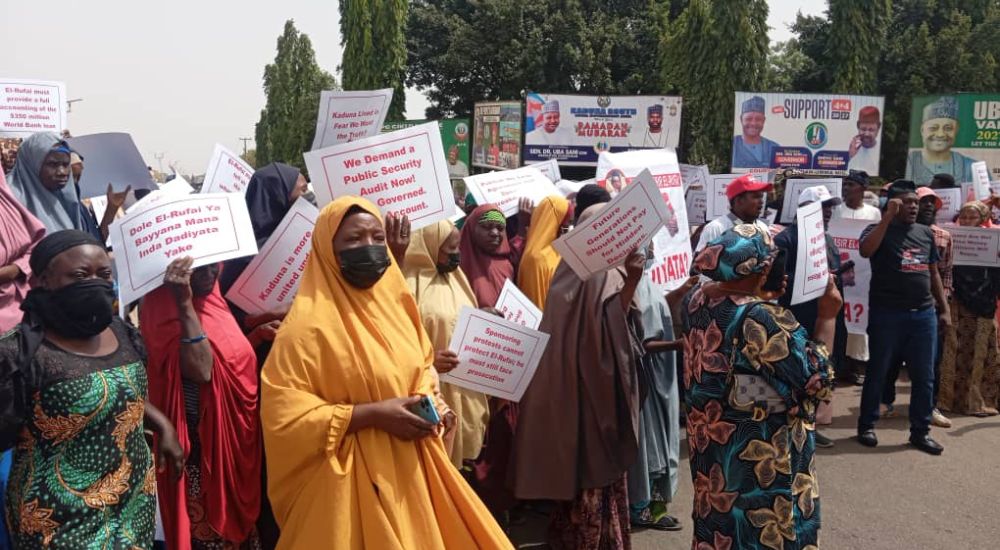
Kaduna Residents Storm Govt House, Demand Probe of El‑Rufai
Hundreds of Kaduna State residents on Thursday staged a peaceful protest at the Government House in Kaduna metropolis, demanding answers over the disappearance of lecturer Abubakar Idris, popularly known as Dadiyata, and calling for a public audit of former Governor Nasir El‑Rufai’s administration.
The protesters, composed of youths, women, and community members, gathered at the UTC roundabout before marching to the state’s seat of power, chanting solidarity slogans and carrying placards. Some of the messages read “We demand public scrutiny, audit now,” “Malam Nasir El‑Rufai, where is Dadiyata?” and “Publish loan agreement and spending breakdown now.” Other placards demanded justice, stating “Kaduna lived in fear, we want the truth,” and “Sponsoring protest cannot protect El‑Rufai; he must face prosecution.”
Dadiyata, a social media commentator and lecturer, was abducted from his Kaduna residence in 2019 by unknown gunmen and has not been seen since. His disappearance remains a controversial unresolved case, prompting calls for transparency and accountability from both the government and security agencies.
READ ALSO:
- Fatal Keffi Road Accident: Driver Avoiding FRSC Patrol Causes 6 Deaths
- Ex‑NNPC GM Jailed for 87 Months in $2.1m Bribery Case
- Osimhen Now Worth €150m Following Napoli Exit, Galatasaray VP Claims
Addressing journalists during the protest, protest leader Anas Yusuf emphasized that the demonstration was non-partisan, aimed solely at promoting justice and accountability. He highlighted insecurity during the previous administration, noting:
“Kaduna bled. Communities were attacked, Birnin Gwari faced isolation, banditry escalated, citizens were kidnapped, families buried loved ones, and fear became normal. Former Governor Nasir El‑Rufai must answer hard questions.”
Another protest leader, Comrade Joseph Chori, described Dadiyata’s disappearance as “an open wound” for Kaduna residents, saying:
“A family still waits. Kaduna still asks: what happened?”
The protesters also demanded an independent public security audit of the El‑Rufai administration and called for full disclosure of the $350 million World Bank loan obtained during his tenure, insisting the loan agreement and spending breakdown be made public.
“Loans are not free money. Public debt demands public accountability because citizens will repay that debt. They deserve transparency,” the group stated.
Former Governor El‑Rufai has denied involvement in Dadiyata’s disappearance, previously stating that the lecturer was a critic of another state government and not linked to his Kaduna administration.
While the protest remained largely peaceful, organizers stressed their action was intended to strengthen democracy and promote justice, not to incite division. They urged authorities to act transparently and ensure accountability for past misgovernance, while praising the relative calm under current Governor Uba Sani.
“We will not allow destabilisation to shield anyone from scrutiny. This is not revenge; this is justice and democracy. Kaduna deserves better, and Kaduna will demand it,” the protesters affirmed.
Kaduna Residents Storm Govt House, Demand Probe of El‑Rufai
metro
Fatal Keffi Road Accident: Driver Avoiding FRSC Patrol Causes 6 Deaths

Fatal Keffi Road Accident: Driver Avoiding FRSC Patrol Causes 6 Deaths
The Federal Road Safety Corps (FRSC) in Nasarawa State has confirmed a fatal accident on the Keffi‑Akwanga expressway that claimed the lives of six passengers and left three others injured.
According to FRSC Sector Commander Yahaya Sabo‑Adiku, the crash occurred around 10:20 a.m. on Thursday when a Toyota Sienna space bus attempted to evade inspection by FRSC officials. Instead of complying with the patrol team’s request to stop, the driver sped off, lost control, and collided with another vehicle, resulting in the deadly crash.
READ ALSO:
- Ex‑NNPC GM Jailed for 87 Months in $2.1m Bribery Case
- Osimhen Now Worth €150m Following Napoli Exit, Galatasaray VP Claims
- BREAKING: Senate Issues Arrest Warrant for CAC Registrar General
“The accident was caused by the recklessness of one of the drivers who refused to stop for our patrol team. In trying to avoid arrest, he crashed into another vehicle,” Mr. Sabo‑Adiku stated.
The FRSC used the incident to remind motorists that safety officials are partners in road safety, not adversaries. The Corps urged drivers to cooperate with inspections to prevent similar road accidents that often result from reckless driving and traffic violations.
The FRSC continues to emphasize strict adherence to road safety rules, warning that non-compliance during patrols can lead to catastrophic accidents. Drivers are encouraged to view FRSC personnel as allies in ensuring highway safety.
Fatal Keffi Road Accident: Driver Avoiding FRSC Patrol Causes 6 Deaths
metro
INEC’s New BVAS Update Will Automatically Reject Mismatched Polling Unit Results
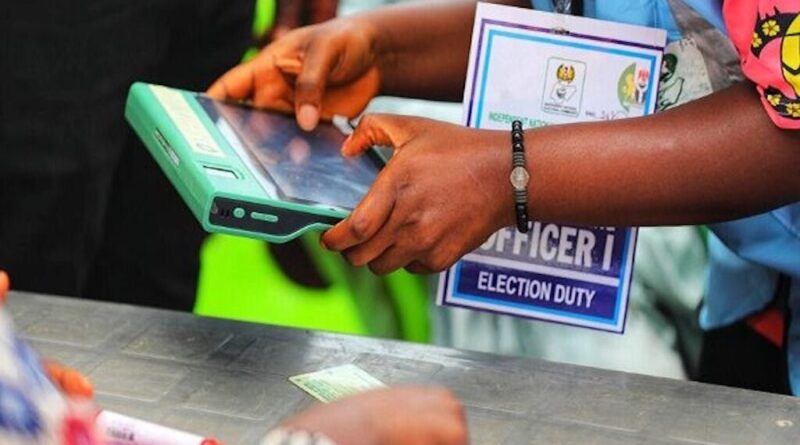
INEC’s New BVAS Update Will Automatically Reject Mismatched Polling Unit Results
The Independent National Electoral Commission (INEC) has clarified that its latest software update for the Bimodal Voter Accreditation System (BVAS) will automatically detect and reject mismatched figures between what is entered on the device and what appears on physical result sheets at polling units, a move aimed at strengthening the integrity of elections in Nigeria.
INEC’s Deputy Director of Information and Publicity, Wilfred Ifogah, explained the enhancement on Sunrise Daily on Channels Television on Thursday, saying the updated BVAS can now read and cross‑check figures on official result sheets against the data entered by presiding officers before results are formally tabulated on Form EC8A.
According to Ifogah, after votes are counted and aggregated at the polling unit, the presiding officer inputs the figures into the BVAS device. The tool then compares this input against the numbers on the scanned result sheet. If the figures do not match, the BVAS will reject the entry and block the upload, ensuring that only consistent and verified results are transmitted into the electoral database.
“If the figures do not correspond with what is recorded, it will not pick it up,” Ifogah said, adding that this enhancement is a critical measure to prevent manipulation, clerical errors, and inflated results at the polling unit level before collation begins.
READ ALSO:
- Ex‑NNPC GM Jailed for 87 Months in $2.1m Bribery Case
- Osimhen Now Worth €150m Following Napoli Exit, Galatasaray VP Claims
- BREAKING: Senate Issues Arrest Warrant for CAC Registrar General
BVAS Mock Trials and Readiness Ahead of Elections
INEC also disclosed that the commission conducted mock trials of the new BVAS update in 289 polling units across the Federal Capital Territory (FCT) prior to the recent Area Council elections. The mock deployment was designed to stress‑test the validation feature, identify challenges, and ensure smooth functionality during live elections.
Officials say the trial showed that the enhanced BVAS technology can effectively identify discrepancies and reduce the likelihood of incorrect result uploads — an issue that has fueled suspicion and court challenges in past elections.
The upgrade forms part of INEC’s broader push to improve transparency, accuracy and trust in Nigeria’s electoral process. INEC’s BVAS system is already equipped with internal safeguards that prevent over‑voting (where total votes exceed the number of accredited voters) and flag anomalies during accreditation and result capture. The new update goes further by validating data between paper result sheets and electronic entries before results are accepted into the system.
INEC’s Rationale and Public Assurance
INEC has faced recurring concerns from political parties, observers, and civil society over result discrepancies between physical result sheets at polling units and what is later collated at state and national levels. In response, the commission has increasingly emphasised its commitment to deploying technology to promote credible elections.
Ifogah stressed that the BVAS enhancement does not replace human judgment but acts as a digital check to ensure what is entered electronically aligns with what has been physically recorded by election officials. He said the innovation provides an additional layer of accountability, helping to reduce opportunities for manipulation at the earliest stage of result transmission.
INEC has also promised continued training for presiding officers and election officials on the new BVAS functionalities to ensure they are comfortable with the processes before future nationwide elections, including the 2027 general elections.
INEC’s New BVAS Update Will Automatically Reject Mismatched Polling Unit Results
-

 Entertainment2 days ago
Entertainment2 days agoNollywood Actor Okemesi Confirmed Dead After Brief Illness
-
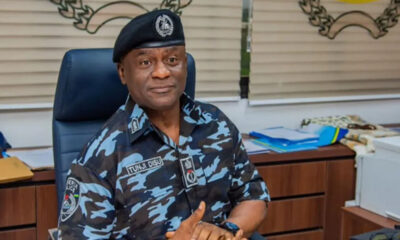
 News3 days ago
News3 days agoBREAKING: IGP Kayode Egbetokun Steps Down as Tinubu Names Tunji Disu as New Police Chief
-
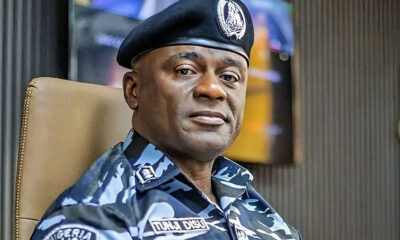
 metro1 day ago
metro1 day agoFrank Mba, Senior DIGs to Exit Police Service After Disu’s Appointment
-
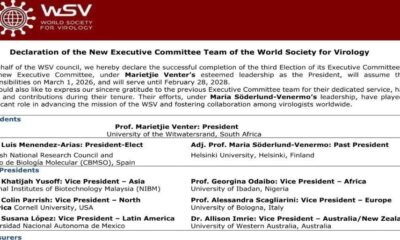
 metro1 day ago
metro1 day agoAfrican Virologists Elected to Lead World Society for Virology
-

 News1 day ago
News1 day agoBREAKING: Tinubu Decorates Tunji Disu as Acting Inspector‑General of Police
-

 News3 days ago
News3 days agoMother of Three Dies by Suicide After Fiance’s Family Rejects Marriage in Ijebu-Ode
-

 metro1 day ago
metro1 day agoAbroad-Based Nigerian Woman Kneels with Children in Emotional Tribute to Husband (VIDEO)
-

 News3 days ago
News3 days agoU.S. Congress Submits Report to Trump on Alleged Christian Persecution in Nigeria





